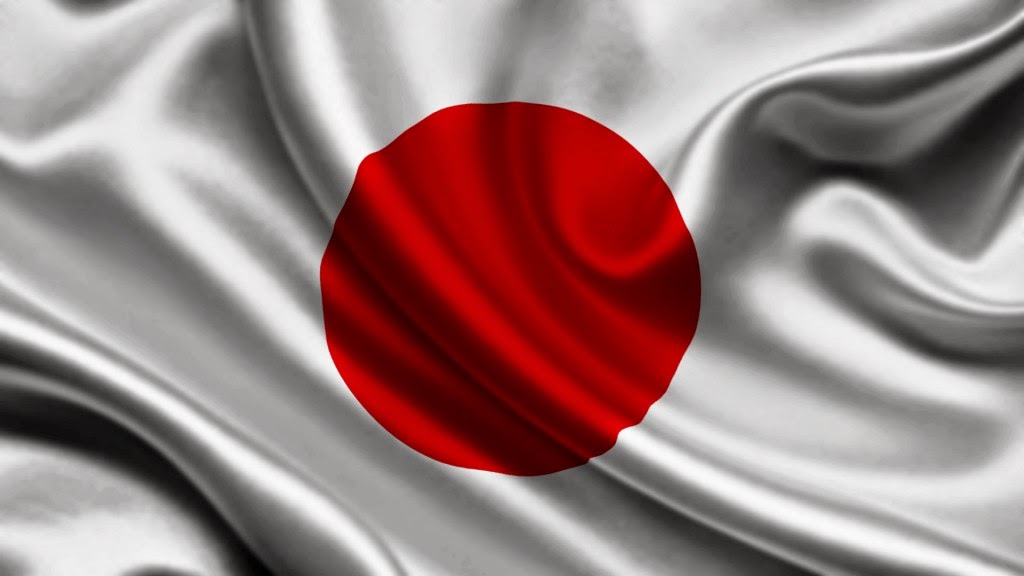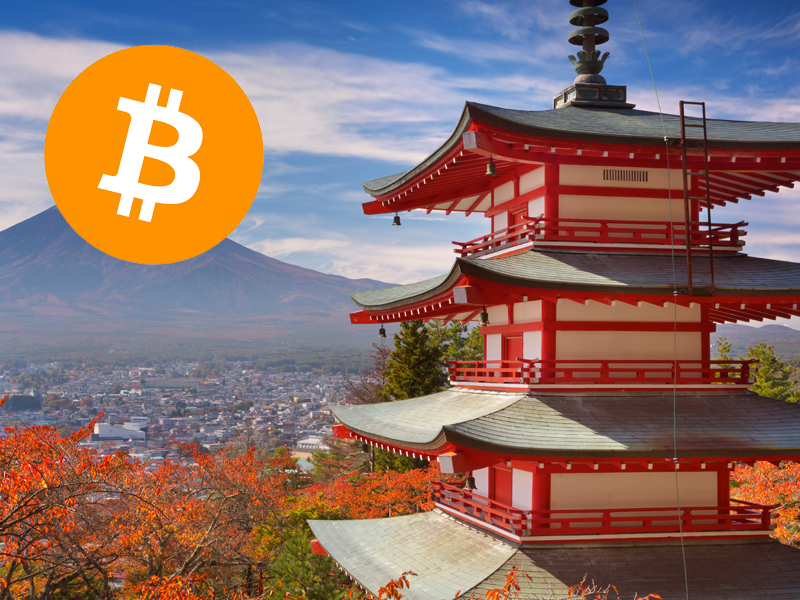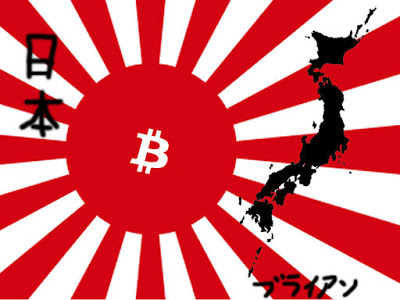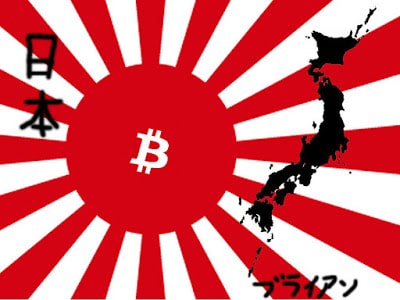
Bic Camera: new merchants accept Bitcoin in Japan
A new electronics retailer decided to start accepting bitcoin in Japan as one of the available payment methods in all its shops within the country.
It is Bic Camera that began to accept bitcoin at several shops back in April, and that is now it is looking to expand this payment after seeing huge levels of demand from its customers.
The retailer is taking payments in the digital currency thanks to a partnership with the domestic bitcoin exchange called bitFlyer, so they can convert bitcoin into yen right after the acceptance.
Bic Camera sells a wide range of products, including cameras, computers and home appliances like fridges and washing machines.
News that Bic Camera is accepting bitcoin at more locations came after the Japanese government’s new regulations around digital currencies and the exchange services. Among those, for example, there is a legal definition for bitcoin as a kind of payment instrument and the decision to eliminate bitcoin taxation.
Also, this could be one reason why we might aspect a new growth in the bitcoin price in the next days.
Read more about Bitcoin in Japan here.
Open your free digital wallet here to store your cryptocurrencies in a safe place.

Japan eliminates Bitcoin Taxation; Rise in Price expected
Japan government officially eliminates bitcoin taxation after it recognized as legal method of payment a few months ago.
Consumption taxes on the sale of bitcoin will come into effect on July 1st.
According to a Deloitte’s report entitled “Japan: Inbound Tax Alert, 2017 Tax Reform Proposals,” digital currencies including Bitcoin will be exempt from the 8% consumption tax in Japan.
Deloitte’s report explains:
“The supply of virtual currency will be exempt from Japanese Consumption Tax (“JCT”). Currently, virtual currencies such as Bitcoin do not fall under the category of exempt sales, and as a result, the sale of virtual currencies in Japan have been treated as taxable for JCT purposes. Following the enactment of the amended Fund Settlement Law in May 2016, which newly defined “virtual currency” as a means of settlement, the sale of virtual currency as defined under the new Fund Settlement Law will be exempt from JCT. This change will apply to sales/purchase transactions performed in Japan on or after 1 July 2017.”
Bitcoin Industry in Japan
Back in March, the Japanese National Diet approved the tax reform proposed by Deloitte. The bill, which came into effect on July 1st will drastically increase bitcoin and cryptocurrency trading activities within the Japanese digital currency exchanges.
The bill will probably increase bitcoin and cryptocurrency trading activities within the Japanese digital currency exchanges.
On April 1, the Japanese government officially recognized Bitcoin as a legal payment method and currency.
The Japanese Bitcoin exchange industry is well regulated with Know Your Customer (KYC) and Anti-Money Laundering (AML) systems. AML policies are very strict in Japan and South Korea, and it is difficult for traders to take advantage of utilizing digital currencies to move large amounts outside of Japan.
Price growth because of bitcoin taxation
Although it could be a coincidence- since Japan has proposed the end of Bitcoin taxation, Bitcoin price increased from around $2,450 to $2,570.
Open your free digital wallet here to store your cryptocurrencies in a safe place.

Bitcoin demand in Asia is more active than in the US
Back on May 31st, one the major Bitcoin exchanges in China called OKCoin returned to help improving the Bitcoin demand withing the Chinese exchanges after a period of suspension of transactions.
As a result, more bitcoin investors are recovering their interest in bitcoin and they are driving the demand for the digital currency.
So, thanks to the activation of withdrawals, bitcoin is now trading at a premium rate in China.
Also, the Chinese press that talks about bitcoin as digital gold is pushing the recent growth of the bitcoin demand for local traders.
On Friday, bitcoin price was about $2,340 in China. A value that was $50 higher than the US rate.
Of course, there are several other major factors that are driving bitcoin price. For example the legalization of the digital currency in Japan, and the use of ICOs in raising funds.
Experts believe that the increasing demand in Asia is pushing the recent growth in the bitcoin price.
South Korea
In South Korea, Bitcoin price increases up to $3,100 when the price on the US exchanges was about $2,400, so $300 higher than the US.
A few startups are also using bitcoin for sending remittances since it works better and faster than traditional money.
For example, one of these startups is called Bluepan, located in South Korea. This company provides an easy way to send money from overseas workers to their families.
In 2 years, Bluepan has processed payments worth $65 mln and for the past year, they recorded a five-time increase in transactions.
Why in Asia?
That said, it is clear that Bitcoin demand in Asia is increasing and its driving prices, while North America shares only a small amount of all users in any sector.
For example, there are fewer customers in North America who use money transfers than in Asia.
This is maybe due to the fact that the worldwide financial system is based on the US dollar, so remittance transactions are easier between dollars and non-dollar currencies compared with transactions that involve two non-dollar currencies.
Open your free digital wallet here to store your cryptocurrencies in a safe place.

Bitcoin Airlines: Japanese Peach to accept the digital currency
Peach Aviation is going to become the first Japan’s airline to accept bitcoin for buying any flight.
This move comes after the Japanese decision to regulate bitcoin as currency, becoming a legal method of payment back in April 1st, 2017.
During a recent interview with CEO Shinichi Inoue, he said:
“Now you can travel without your wallet. I think this is innovation; we’ll put all our energy into it.”
Peach is a budget domestic flights company that operates in Korea, China and Thailand.
The firm announced that they will accept bitcoin payments by the end of 2017; also, the firm is looking to install Bitcoin ATMs at airports.
“This is a real first step in partnerships for Japan and we are aiming for more company and service tie-ups,” said Inoue in an interview conducted by Bloomberg.
“We want to encourage visitors from overseas and the revitalization of Japan’s regions.”
Several major retailers and merchants are starting to accept bitcoin in Japan thanks to the recent law on digital currencies, as you can read here.
And this is maybe one of the prominent reason why bitcoin price is growing so much during the latest period.
Also, Japanese traders are driving bitcoin prices as they transacted huge amounts on the exchanges: recent studies revealed that Yen is the major fiat currency being exchanged for bitcoin.
Bitcoin airlines worldwide
There are a few other bitcoin airlines in the world and also several ways to book a flight with digital currencies.
For example, CheapAir and BtcTrip are the first platforms that accept this disruptive method of payment.
Also, Latvia-based airline and Virgin Galactic began accepting bitcoin since 2013/2014, while if you want to book a private jet, you can do it through JetVizor.
More bitcoin airlines to suggest? Write us a message in the comments! We would be happy to add new companies.
Open your free digital wallet here to store your cryptocurrencies in a safe place.

Bitcoin all time high: more than $2000
While I’m writing this article the bitcoin all time high reached a value of $2,019 for the first time in its history.
By reaching a value of more than $2,000, bitcoin’s price grown of about 100% this year and nearly 125% since the annual low of $891.51 bitcoin hit back in March.
Experts agreed that bitcoin’s price recent growth could lead to reaching significant attention from the media and maybe also major financial media outlet would cover bitcoin.
Google Trends data showed that the search for “bitcoin” have still not reached its all-time high they set back in December 2013, but it is getting closer (right now it has a score of 85/100).
That said, the reasons that drove the bitcoin all time high are difficult to identify.
Growing interest by investors
Surely, one reason is the increase in interest from investors and traders, as reported by the major exchange platforms.
Another factor that helped bitcoin to reach its current all-time high is the growing influence of Japan, a country where the technology is now regulated: from April 1st, in fact, bitcoin became a legal method of payment.
The Japanese yen is the single largest currency being exchanged for bitcoin, accounting for more than 45% of the money flow into bitcoin at the time of the report, according to CryptoCompare data.
The Japanese yen is the greatest currency being exchanged for bitcoin: currently, almost 45% of the money flow into bitcoin.
After the yen, there is US dollar that makes up 30% of the money flowing into bitcoin.
Block size debate
Bitcoin price grew in spite of the current block size debate, an issue related to the transaction capacity and the blockchain speed to validate a transaction.
Bitcoin developers are talking about this issue in order to address it and there are a few proposals such as the so-called SegWit or Segregated Witness that would increase blocks capacity.
Read here why you should hold Bitcoin and how.
Open your free digital wallet here to store your cryptocurrencies in a safe place.

Bitcoin Japan Regulation: official recognized as method of payment
On April 1st, 2017, Bitcoin Japan regulation was officially announced as the digital currency is finally recognized as a method of payment.
This Bitcoin legal classification will set a boom in its adoption as retailers will be able to accept the most popular digital currency.
In 2016, Japanese officials ended the 8% consumption tax rate imposed on bitcoin purchasing on the digital currency exchanges.
This tax relief and the Bitcoin Japan regulation might help to foster confidence in the digital currency industry, where there are 4,200 merchants that accept bitcoin. This growth – merchants are quadrupled from 2015 – occurred in two years when Japan’s cabinet decided to recognize bitcoin and digital currencies as the equivalent of money, in March 2016.
Payment processor Coincheck estimated that 20,000 merchants will be started to accept bitcoin this year.
260,000 Bitcoin-accepting Retail Stores
According to the Asian magazine Nikkei, two Japanese retailing giants have started a few partnerships with bitcoin companies in order to accept bitcoin as a method of payment.
One of these is Recruit Lifestyle, the retail arm of conglomerate Recruit Holdings, that is partnering with Coincheck in order to introduce bitcoin payments.
Also, bitcoin will be soon included in AirRegi, a recruit-developed point-of-sale application that is used at 260,000 retail locations across the whole Japan.
Customers will be able to use tablets and smartphones for paying bills with their bitcoin wallet and Coincheck will convert the digital currency into yen in order to transfer the fiat funds to the shop.
Also, AirRegi is compatible with Alibaba’s Alipay app for payments. Bitcoin’s inclusion will be attractive for tourists who will be able to make payments in other countries without the burdens of foreign exchange.
Click here to more about Bitcoin in Japan.
Open your free digital wallet here to store your cryptocurrencies in a safe place.

Japanese Blockchain Consortium is growing fast
A Japanese blockchain consortium grew very fast and now it includes more than 1 hundred members.
Membership of this Blockchain Collaborative Consortium (BCCC) grew since its creation back in April 2016.
BCCC memberhip includes Japan Microsoft, Infoteria, Mitsui Sumotomo Insurance, PwC, Bitbank, ConsenSys and more.
Also, the Japanese Blockchain Consortium announced that the 100th student from its Blockchain University program had successfully graduated – signal that the BCC’s plan to improve knowledge about the distributed ledger is succeeding.
In a blog post revealed today, the founder and CEO of Infoteria, Pina Hirano, explained that the Japanese Blockchain University is the only one of its kind within the country. He said:
“While the world related to FinTech and block chains is moving at a rapid pace, BCCC will add new members’ power and make activities more active so that domestic movements will not be delayed.”
Hirano suggested the total Japanese Blockchain consortium members are 109, but at the moment the BCCC website only lists 101, so maybe more members will be announced in the near future.
Japanese blockchain growth
During the last few months Japan has been characterized by its interest and study of the blockchain.
In November Ripple launched its own blockchain consortium with more than 40 banks with the goal of building a network to conduct cross-border payments.
Also, in December the Mizuho Financial Group, Inc., Sumitomo Mitsui Banking Corporation and other banks helped Deloitte Japan for a blockchain test and research about inter-bank payments.
Despite the test, Japan faced a shortage of blockchain developers, as reported by Reuters.
To solve this problem within the country, the BCCC graduated two classes of students with 8 courses each, including “practical training”, “foundation of blockchain technology” with lessons about the bitcoin blockchain. More classes will be added next month, but unfortunately this consotium blockchain class is only conducted in Japanese language.
To read more about Japan plans related to the blockchain, click here.
Open your free digital wallet here to store your cryptocurrencies in a safe place.

Japan Bitcoin Regulation for 2017
Japan Bitcoin Regulation
Japan Bitcoin Regulation will take place in 2017 and it wants to drop an 8% sales tax on Bitcoin purchases.
This move will take effect in July 2017, according to a document published by CoinDesk.
Although the proposal has yet to be approved by senior Japanese government, an annual tax document written by the ruling Liberal Democratic Party and the Komeito party was revealed today. Thanks to this document now we know more details on the proposal suggested back in October by the Ministry of Finance and the Financial Services Agency.
The tax remains in place today.
If approved by the Cabinet, the plan will institute a period of grace in June 2017, with the tax exemption becoming official the following month.
The document just released is the result of discussions among government stakeholders first reported by the regional news service called Nikkei.
Local startups have already responded positively to this Japan Bitcoin regulation.
CEO of exchange service Quoine, Mike Kayamori, commented that the plan to drop the sales tax was expected, but it represents a good message to the cryptocurrency community.
Kayamori explained to CoinDesk:
“It’s a huge relief for us. Customers don’t have to pay tax for each transaction. Hope this becomes standard practice.”
This move follows a very busy year for Japan on the exchange front, as the government decided to request registration for all the companies that handle bitcoin sales within the Japanese country.
Discussions around exchange regulation began last year when government ministers tried to obtain information from exchange services.
Also, a deliberations took place last year because of the collapse of Mt Gox, a bitcoin exchange imploded in 2014, causing hundreds of millions of dollars lost by the exchange users.
Document originally shared by CoinDesk.com on Scribd. Unfortunately it is available only in Japanese language.
Open your free digital wallet here to store your cryptocurrencies in a safe place.

Why central banks need to study Bitcoin

Japanese central banks need to study Bitcoin
Japan believes in Bitcoin
Japan to regulate Bitcoin
Multicurrency Wallet

Open your free digital wallet here to store your cryptocurrencies in a safe place.

Bitcoin officially recognized in Japan
The open-minded Japan
Multicurrencies Wallet

Open your free digital wallet here to store your cryptocurrencies in a safe place.